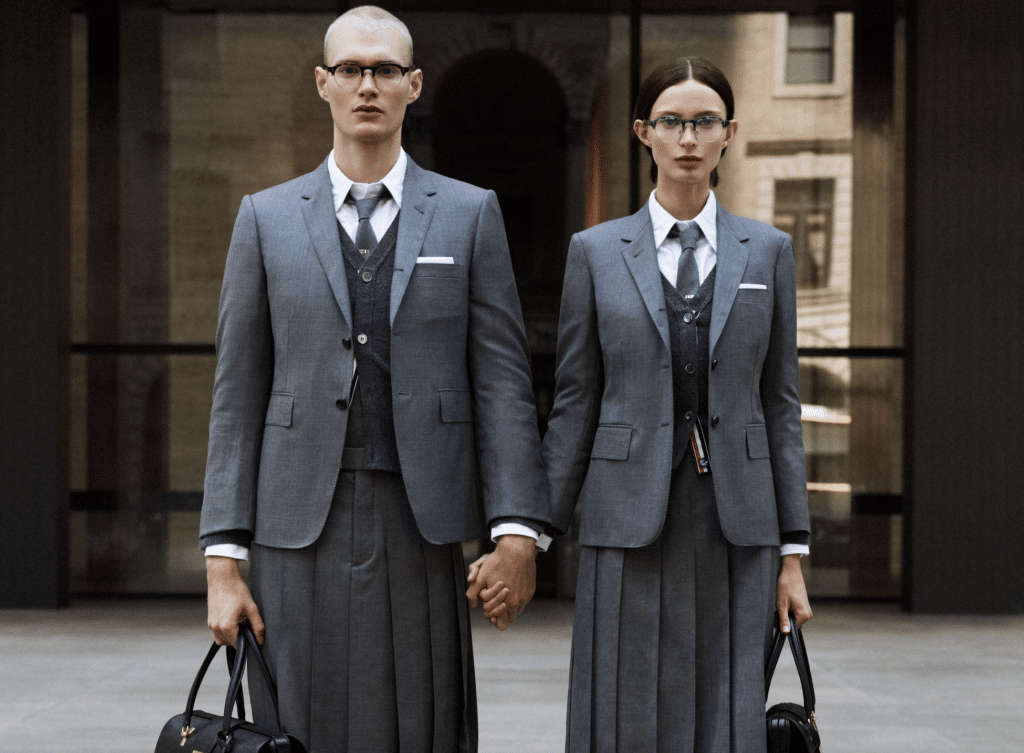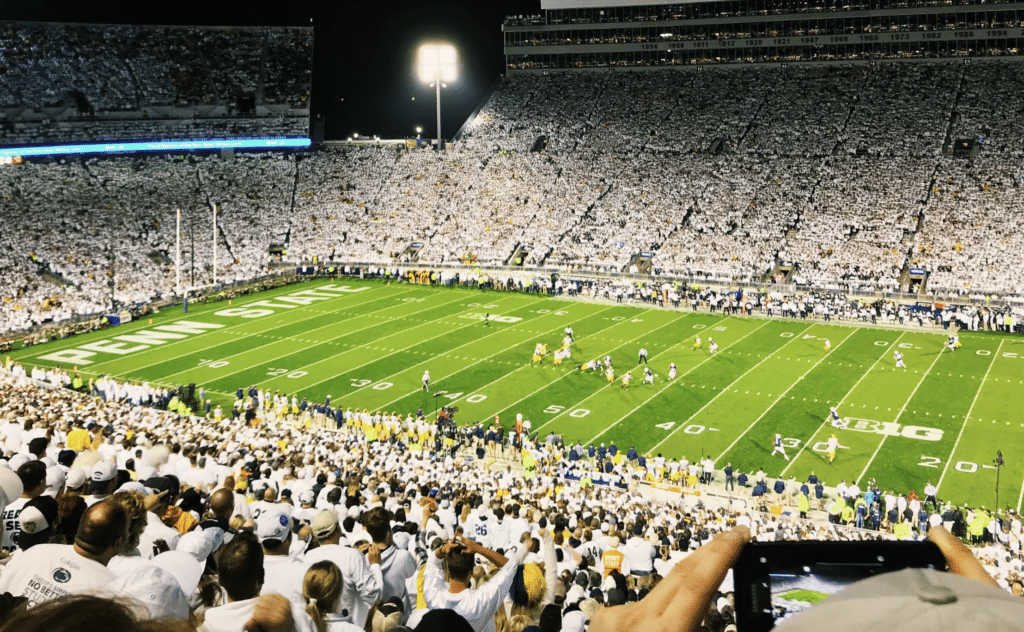The Trump campaign has allegedly used “Seven Nation Army” – the influential, 2003 bass line-riffing sensation by rock duo the White Stripes – without permission from the band for a second time, according to a new lawsuit. The band, which is made up of Jack and Meg White, filed a lawsuit in the U.S. District Court for the Southern District of New York on Monday against former President Donald Trump, his 2024 presidential campaign, and his campaign communications officer, Margo Mcatee Martin. Their lawsuit alleges that Trump and his campaign used their iconic song “Seven Nation Army” without permission in a social media video promoting his 2024 presidential run, similar to what he has not only done with other artists’ songs, but also this exact same song in a different campaign video in 2016, the complaint states.
In their complaint, the White Stripes claim that Trump’s unauthorized use of “Seven Nation Army” constitutes a “flagrant misappropriation” of their copyright and song, which they describe as “among the most well-known and influential musical works of all time.” The band points to various Trump social media video posts on X, Instagram, and “possibly other social media platforms,” where Trump was boarding an aircraft accompanied by the caption “President @realDonaldTrump departs for Michigan and Wisconsin!” and a soundtrack containing “nothing more than the [‘Seven Nation Army’] highly-distinctive and immediately recognizable introductory riff.”
According to the newly-filed lawsuit, the video was viewed more than 65,000 times and reposted 700 times in just a few hours. The White Stripes argue that the use of their song in the video was designed to boost Trump’s public image and generate excitement and financial contributions for his campaign, emphasizing that they did not authorize the use of the song. They claim that would not have done so under any circumstances and highlight their long-standing opposition to being associated with Trump. In fact, the White Stripes made this disapproval clear in 2016 when a pro-Trump campaign video also used “Seven Nation Army” without permission. At that time, the band publicly condemned the association, stating, “in no uncertain terms,” that they were “disgusted by that association,” according to the complaint.
“The new association with Trump that the defendants have foisted upon [us] through the Infringing Trump videos is even more offensive to [us] because [we] vehemently oppose the policies adopted and actions taken by Trump when he was President and those he has proposed for the second term he seeks,” the band states in its filing.
Trump, the band argues, is a “self-professed sophisticated and successful businessman” and should have known that his use of the song was unauthorized and a violation of the Copyright Act. Not only does he boast “decades-long experience in the entertainment industry,” he also has been “on the receiving end of numerous copyright claims by musical artists whose work he used without permission.”
The lawsuit includes multiple counts of copyright infringement, targeting both the musical composition (the underlying music) and the sound recording (the actual recording of the song). Specifically, the complaint alleges direct copyright infringement of both the “7NA Composition” and the “7NA Recording.” It also claims that Trump and his campaign engaged in contributory and vicarious copyright infringement by encouraging the dissemination of the infringing video and failing to prevent further infringement, despite having the ability to do so, and caused them significant financial and reputational harm.
In connection with their lawsuit, the White Stripes are asking the court to declare Trump’s use of their song unlawful and to issue an injunction preventing him and his campaign from using the song in any future videos. They also seek a full accounting of the profits generated from the infringing video, including any financial contributions or merchandise sales that resulted from the unauthorized use of the song. The band is requesting monetary damages, including actual damages they have sustained, and the profits Trump’s campaign may have gained from the use of the song. Additionally, they are seeking statutory damages, attorneys’ fees, and court costs.
THE BIGGER PICTURE: The White Stripes’ suit is the latest music-related legal squabble for Trump. He is currently facing at least two other lawsuits over his use of others copyright-protected music at campaign rallies and in campaign videos. And he is not faring particularly well. Trump was handed losses recently, with a federal court in Atlanta barring him from using “Hold On, I’m Coming,” a song co-written by the late Isaac Hayes, whose estate sued Trump for copyright infringement. This month, a federal court in New York sided with musician Eddy Grant in his lawsuit over Trump’s use of the song “Electric Avenue.”
“Music industry experts and copyright law attorneys say the cases, as well as Trump’s decision to continue playing certain songs despite artists’ requests that he desist, underscore the complex legalities of copyright infringement in today’s digital, streaming and licensing era,” the Washington Post wrote this week. Not limited to copyright claims and considerations, though, Trump’s unauthorized use of others’ music also raises questions from an endorsement – or more precisely, a false endorsement – point of view. The White Stripes have not lodged a false endorsement claim against the former president but they could. This would see them argue, in essence, that by making use of their song, Trump is suggesting that he has their support. As for whether such a claim would be successful is another matter; there are arguments to be made about whether such use would, in fact, lead consumers to believe that an endorsement is in play.
At the same time, no shortage of famous folks have complained about and/or publicly distanced themselves from Trump’s use of their songs without filing suit. Celine Dion’s camp released a statement last month in which they said that they are “aware of the unauthorized usage of the video, recording, musical performance, and likeness of Celine Dion singing ‘My Heart Will Go On’ at a Donald Trump/JD Vance campaign rally in Montana.” Such use was in “no way … authorized, and Celine Dion does not endorse this or any similar use,” the statement read.
Still yet, delving into the idea of endorsements even further, it is worth asking just how much these types of endorsements (or in Trump’s case, the lack thereof) mean to voters. About 89 percent of adults said in February 2020 that they would not switch their vote because of a celebrity endorsement, Morning Consult found. Meanwhile, a recent report from the Brookings Institute says that celebrity endorsements “typically don’t move election needles very much.” However, the backing of a famous figure could make a difference when a race is particularly tight. According to Darrell M. West, a senior fellow at Brookings’ Center for Technology Innovation, “In a close race, little things matter so it is possible that Swift/Beyoncé endorsements, for example, could be decisive in areas where the vice president needs a boost.”
Richard Longoria, an associate professor of political science at University of Texas Rio Grande Valley, echoed this sentiment, stating that “celebrities can help keep a politician in the news cycle – and a celebrity endorsement gives candidates an extra opportunity to distribute their message to a public audience.” In short: endorsements from celebrities are “unlikely to change a voter’s core values or sway voters who are already closely following politics and are familiar with the different candidates and what they stand for, but they still have cultural influence and could encourage people who are not closely engaged in politics or an election to vote for or support a candidate in other ways, such as with donations.”
And such support can come via a formal endorsement or a green-light to use their music.
The case is The White Stripes v. Trump, 1:24-cv-06811 (SDNY).











